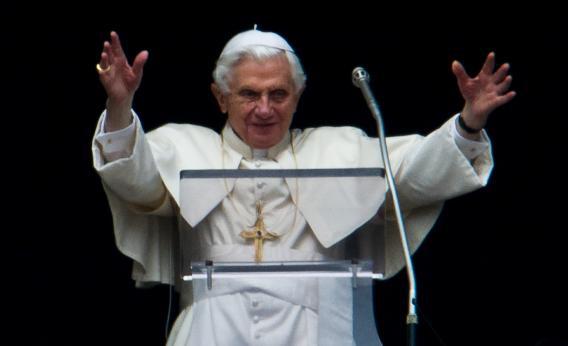Has finance become a “false divinity in the world”? Pope Benedict XVI thinks so. “We see that the world of finance can dominate the human being,” he has said. “[It is] no longer an instrument to foster well-being… [it] becomes a power that oppresses, that almost demands worship.”
As well as warming the hearts of banker-haters everywhere, the Pope’s criticism is well aimed. Not only did the finance industry’s arrogance help spur crisis and recession, but there’s something dangerous at the core of finance. The human good can all too easily be lost when people’s past work and future hopes are expressed in purely monetary terms.
In the Old Testament, the ancient Israelites were warned that too rigid a view of financial obligations is cruel and socially divisive. Aristotle added another essential objection. The ancient Greek philosopher pointed out that monetary wealth can keep on increasing forever — unlike our appetite for the things that money can buy. Yet while the worldy infinity of finance is alluring, it is ultimately false. Money has no human meaning on its own, but only when it serves a meaningful purpose.
The risks of inhumane finance may be eternal, but the Pope is also alluding to a more modern problem – the treatment of finance as a sort of god, and financiers as its priests. Consider four manifestations of the quasi-religious approach.
First, the magical expectations of finance. Too many people, and too many governments, imagine that some arrangement of the financial system — this monetary and fiscal policy mix, that sort of mortgage, this stock market, that collection of derivatives — will generate durable wealth or economic justice.
Second, think of the awe which surrounds the industry. The economic forecasts of financial professional are rarely right, but they receive the sort of respect once given to (equally inaccurate) oracles of divinity. The pronouncements of leading financiers, from George Soros to Warren Buffett, are taken seriouslysimply because these people have made lots of money in the financial markets. Political leaders tremble at the judgements of financial markets.
Third, consider the treatment of central banking as an activity beyond normal human understanding. A few decades ago, these financial practitioners were considered too elevated to be politically accountable. More recently, faith in central bank independence has been shaken: but it has not been destroyed by their abysmal record before the financial crisis. Indeed, Ben Bernanke and his peers have been given more power — and only a little more supervision from the mere mortals who have won elections.
Finally, despite much anti-banker rhetoric, the world continues to shower its own rewards on the high priests of finance. Thomas Philippon, a professor at New York University, has shown that the share of U.S. national income dedicated to finance has fallen only slightly since the crisis, when it was at its highest since records began in 1865. The profession’s leaders are amazingly well paid. The average income per head at Goldman Sachs in 2011, a grim year for the leading investment bank, was $354,000, or about nine times higher than the national average. Philippon estimates that about a quarter of the financiers’ total income is unmerited. I suspect he is much too kind to the financial world.
In an ethical economy, none of this is right. Money can seem to make money for a while, but no amount of financial alchemy can generate real wealth. Financial professionals and financial markets are fallible. Central banking is inherently political. And the temple offerings to finance, in the form of inflated salaries, are excessive.
Still, finance should not be condemned as entirely evil. The modern industrial economy relies on money, credit and the hurly burly of investment to function. For all its flaws, the current financial system is more efficient and flexible than alternative means of gathering and allocating economic resources such as barter or rationing. At its best, and when it works, the business of banking and investment promotes the common good: it creates solidarity among savers and borrowers and rewards both daring and prudence. Lloyd Blankfein, chairman of Goldman Sachs was not entirely wrong to claim that his firm did “God’s work”.
Indeed, at the bottom of the economic ladder, people need more, not less, finance. Financial inclusion of the sort endorsed by the G20 finance ministers last week is desirable. But at the top of the ladder, the industry needs what students of religion call desacralisation. The modern incarnation of the Israelites’ golden calf should be stripped of the trappings of holiness. It is better for finance to serve the genuine economic good on earth than to aspire to an unmerited place in heaven.
Read more at Reuters Breakingviews.
